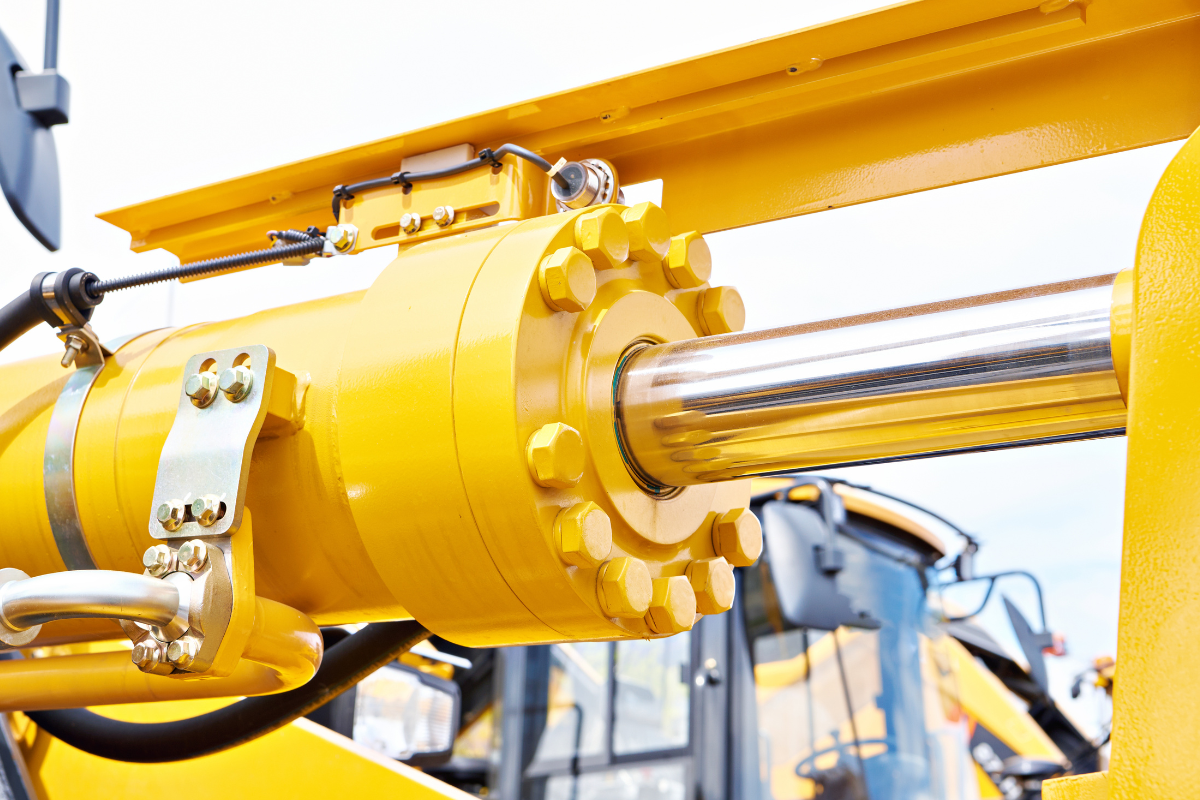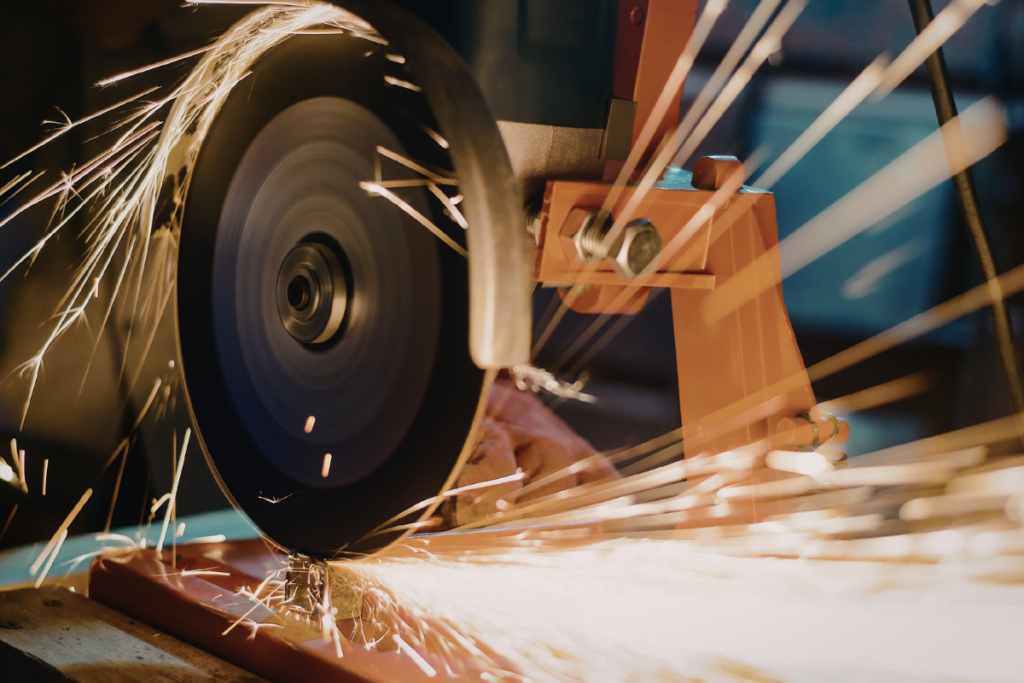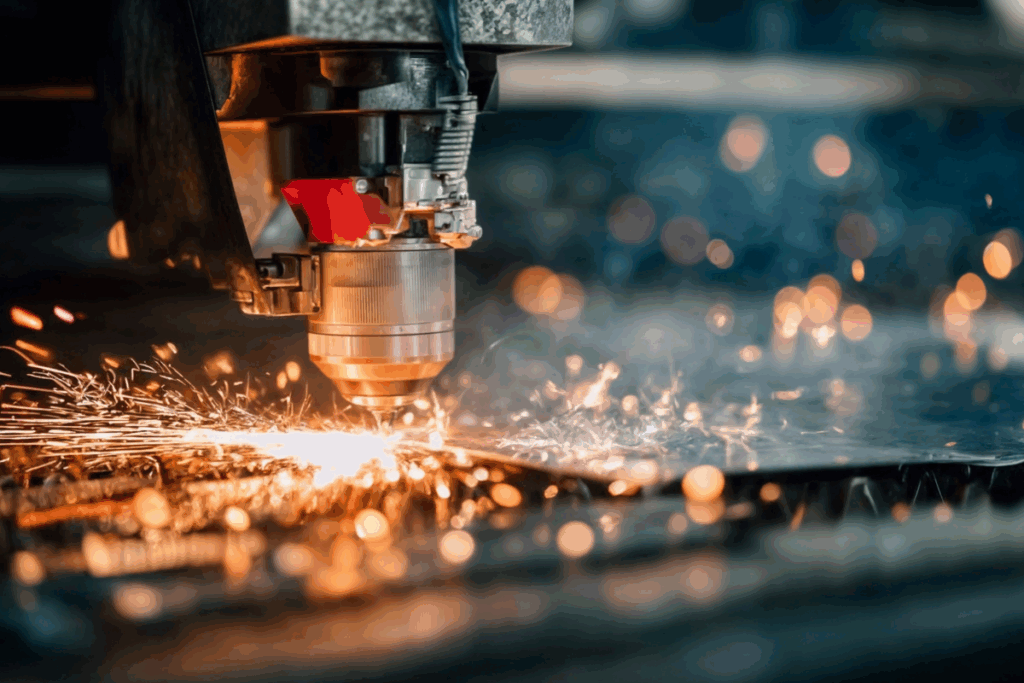Hydraulic cylinders are critical components for heavy-duty off-road vehicle applications in the agricultural, mining, construction, and other industries where performance, durability, and quality are paramount.
In this month’s blog, we’ll look at the unique design and fabrication characteristics of these critical components so our customers can get a deeper understanding of the attention to detail that goes into every project.
Why Hydraulic Cylinders Require Special Design And Fabrication Considerations
Hydraulic cylinders translate raw hydraulic pressure into the force required to lift, steer, and stabilize machinery operating in unforgiving conditions while withstanding extreme temperature fluctuations, abrasive particulates, and prolonged exposure to moisture and chemical agents.
Because they’re designed to withstand the brutal conditions of industrial use, manufacturers need to pay special attention to hydraulic cylinder design, fabrication, and integration into the final application. Factors such as maximum operating pressure, temperature range, speed, and stroke length must all be defined and understood to develop a design approach that directly supports cylinder reliability and longevity.
Material Selection For Different Applications
When selecting materials during the design phases, fabricators must make their recommendations based on a number of factors, including operating conditions, pressure ratings, load bearing requirements, and corrosion resistance.
High-strength alloy steels, aluminum, and specialty alloys are among the most popular materials used in hydraulic cylinder components such as the body, piston, rod, and seals.
Experienced off-road parts and equipment suppliers understand which materials to use for different parts requirements, resulting in fewer breakdowns, longer service life, and reduced maintenance and repair costs.
Seal Systems That Control Contamination
Seal design is crucial to prevent the infiltration of mud, dust, water, and fine particulates, thereby preventing contamination of the hydraulic fluid. The systems must also be designed to operate effectively while tolerating constant movement under heavy loads while minimizing friction and wear.
Advanced sealing technologies, including multi-lip wipers, high-performance elastomers, and application-specific profiles provide the level of protection needed to withstand heavy industrial use.
While precision machining the components, concentricity and tolerance control ensure seals are not overstressed, ensuring fewer failures and less downtime.
Data-Driven Cylinder Integration
Precision machine experts rely on specific design data to ensure they create to-spec components that will fit perfectly into your final assembly and perform reliably in the field. This critical information includes bore size, rod diameter, and stroke length to ensure the final part fulfills the required force output, speed, and precision.
This process also means meeting tight tolerances to ensure the cylinder operates as required. Modern fabricators use advanced CAD/CNC technology to determine and fulfill tolerance demands, especially where inaccuracies can pose a risk to the success of the project.
Advanced Coatings For Enhanced Protection
Cylinder rods are particularly vulnerable to wear, corrosion, abrasive particle incursion, and impact damage. Many fabrication shops still use traditional hard chrome plating as a solution, but this process is quickly being replaced with new, advanced technologies such as high-velocity oxygen fuel (HVOF) coatings.
HVOPF coatings offer a highly dense, low-porosity, and strong-adhering solution that enhances wear, corrosion, and oxidation resistance. It also often serves as a safer, environmentally friendlier replacement for hard chrome coatings.
Read More: 5 Key Benefits Of Applying Powder Coatings To Your Precision Machine Products
Robust Testing And Validating Processes
Testing hydraulic cylinders before they’re moved downstream for further production involves visual inspections for external leaks and damage, as well as performing internal tests to check for bypassing seals and pressure holding ability.
Standard validation methods include testing the cylinder’s movement under no load conditions, and using a flow meter to detect oil escaping the internal seals. Other advanced specialized testing includes simulating real-world operating conditions, applying pressure, velocity, and side loads to the cylinder while measuring its dynamic forces and motions.
Read More: How To Select The Right Material For Your Metalworking Projects
Collaborate With AC Fabrication & Assembly Solutions For High-Quality Off Road Parts And Equipment
Our team of skilled engineers and fabricators utilizes integrated project development processes that include everything from design and precision machining to finishing and assembly.
With AC Fabrication in your corner, you can be assured of high-quality products, efficient project processing, and exceptional customer service that focuses solely on the successful completion of your project.
Partner With The Agricultural Equipment Manufacturers At AC Fabrication & Assembly Solutions On Your Next Metalworking Project
With 300 years of combined experience under our belts, we offer unparalleled quality, durability, and service you won’t find with any other supplier, delivered by skilled technicians whose primary goal is to create sustainable growth for our customers.
Contact an AC Fabrication and Assembly Solutions expert at 204-952-1900 or sales@acfabandassembly.com for a custom quote on your next project today!



